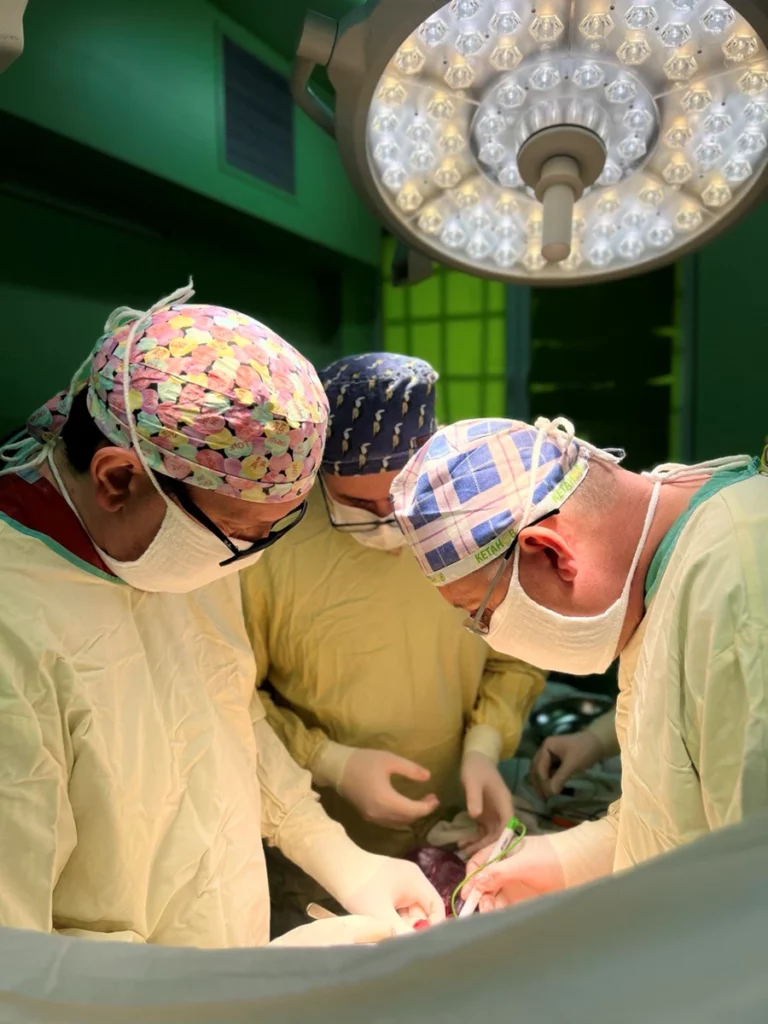Lviv Oblast Children’s Surgeons Help 6-Year-Old Girl Suffering from Rare Genetic Disease
The disease resulted in spleen damage, severe anaemia and other secondary complications.
The little bagpiper has been ill since childhood. Her parents first noticed their daughter’s health problems when she was seven months old – she had an enlarged abdomen and low blood counts.
The girl was examined for a long time in various medical institutions, she was often and severely ill, and due to her deteriorating condition, she was often in intensive care. To control her severe anaemia, she had to undergo systematic red blood cell transfusions several times a month.
“The girl came to our Centre in a very serious condition. The child’s abdomen was gigantic. The spleen was filling the entire abdominal cavity, pressing on the liver, diaphragm, lungs, and other internal organs.
As a result of the severe chronic disease, she developed stunting and other secondary complications that worsened the girl’s quality of life,” said Olha Dorosh, a haematologist at the Western Ukrainian Specialised Children’s Medical Centre.
After a comprehensive examination at the Centre, the little patient was diagnosed with a hereditary haemolytic disease – hereditary stomatocytosis. Olha Dorosh explained that this is a rare genetic disease that affects red blood cells and can cause hypersplenism (pathological enlargement of the spleen) and disrupt the organ’s function.
“There was a high risk of spontaneous rupture of the spleen as a result of splenic injury or infarction. That is why the Centre’s multidisciplinary team decided to perform a splenectomy, i.e. to remove the spleen,” the paediatric surgeons said.
Before the surgery, the girl received the necessary vaccinations at the Clinic of Immunology and Rheumatology.
The girl’s mother says that before the operation, due to her serious condition, the child did not attend kindergarten and could not play with her peers. Removal of the spleen helped to normalise the vital functions of the body, and there is no longer a need for constant transfusion of blood components.
Now the girl is actively recovering, preparing for school, and finding time for fun with other children. In general, she lives a normal life of a healthy child.
“We rejoice together with the parents and the medical team of the Centre,” the doctors of the ZUSDMCH add.

